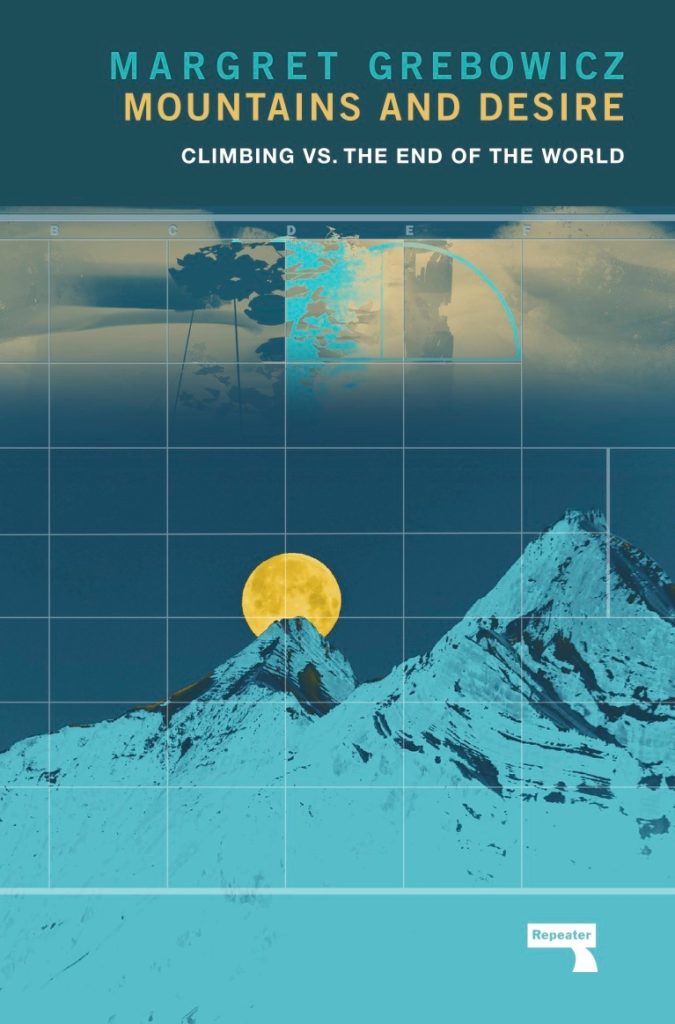The movement of mountains from specialist pursuit to mainstream pastime is the focus of Margret Grebowicz’s ‘Mountains and Desire’, which offers a timely appraisal of our relationship with high places, finds Anna Fleming.

Mountains and climbing are having their moment. What was once a niche activity pursued by a motely crew of eccentrics and enthusiasts is becoming ever more popular. From Snowdon to Everest, queues are forming in the most unlikely places and astonishing photographs are shared across millions of screens as the world looks on, variously bemused, baffled and outraged by the crowds of people waiting in line to get their own moment on the summit.
This movement of the mountains from specialist pursuit to mainstream pastime is the focus of Margret Grebowicz’s book, Mountains and Desire, which offers a timely appraisal of our relationship with high places.
Eschewing the hard philosophising and painstaking historicism that often defines mountain writing, Grebowicz takes us on a jaunty cultural journey into our collective lust. From Everest to Yosemite, George Mallory, Alex Honnold and even Nan Shepherd feature in this slim volume that successfully handles the heavyweights with a playful light touch.
The truth is that my way into the vast philosophical conundrum that is The Mountains was less via philosophy and more via fangirlhood and popular culture.
The idea is that mountains are not just consumed by climbers – but also by a hungry audience that lusts after the stories that come out of these hostile environments. Earlier in the twentieth century, the armchair mountaineer had to content themselves with news reports, occasional photographs and the written word. Now, with drones, smart phones, social media and the internet, the stories and footage are everywhere. Climbing is a spectator sport and the audience is growing.
Even Hollywood is getting in on the action and Grebowicz weaves in some great analysis of Free Solo (2018) and Vertical Limit (2000), touchstones from the film industry’s affair with climbing. (Both brilliant and ridiculous in their own ways: the one an Oscar-winning documentary of one man’s mission to solo a 900 metre rock-face; the other a cult classic in the so-bad-it’s-good category, featuring among many great scenes, a standout running-start ice-axe dyno.) With Free Solo and The Dawn Wall (2017), Grebowicz examines how romance is written into the stories, producing ‘do the climb and get the girl’ narratives, which points to a change in our mountain dreaming:
Surely, we are witnessing a shift in culture, society and human imagination when what was once exploration and discovery is now coextensive with heteronormative reproductive middle-class life.
The strength of this book lies in its desire to question. Grebowicz is not so much critical as curious and less concerned with providing definitive answers than raising questions. ‘What is summitting really about?’ ‘What if Everest…were closed to climbers forever?’ ‘What happens when more and more people run for the hills, not just to enjoy the view or take a break from work, but in pursuit of myriad #lifegoals?’
She traces this questioning culture back to the foundational question – Why do you want to climb Everest? – asked of George Mallory by a New York Times interviewer in 1923, astutely pointing out,
By the time of Hilary and Norgay’s first ascent of Everest, thirty years later, it was well understood that climbing had a global audience whose first question was “why?” Meanwhile, no one was asking “why?” about the many other popular sports at the time.
(Which leads me to wonder, what would happen if the end of football match discussion were to include that all-important why? Perhaps there is scope here for Joey Barton, the self-styled philosopher-footballer, to step in and enlighten us all.)
Grebowicz surveys the terrain of climbing in our time of late capitalism, globalisation and environmental concerns. With thought given to the ways that business ideals of progress and optimization are mapped onto climbing, at the same time as rubbish and human bodies pile up on Everest, this a book that does not shy away from the uncomfortable and unsightly aspects of mountain desire. Why prod this hornets’ nest? Because it’s there.
*
‘Mountains and Desire’ is out now, published by Repeater Books. Buy a copy here (£9.99).